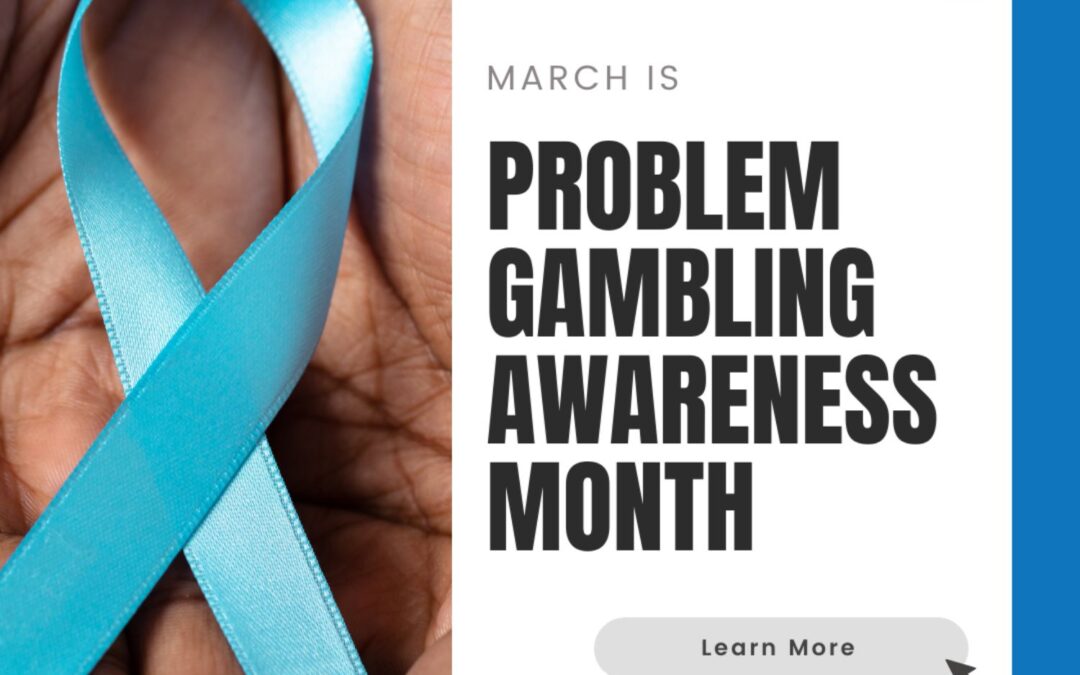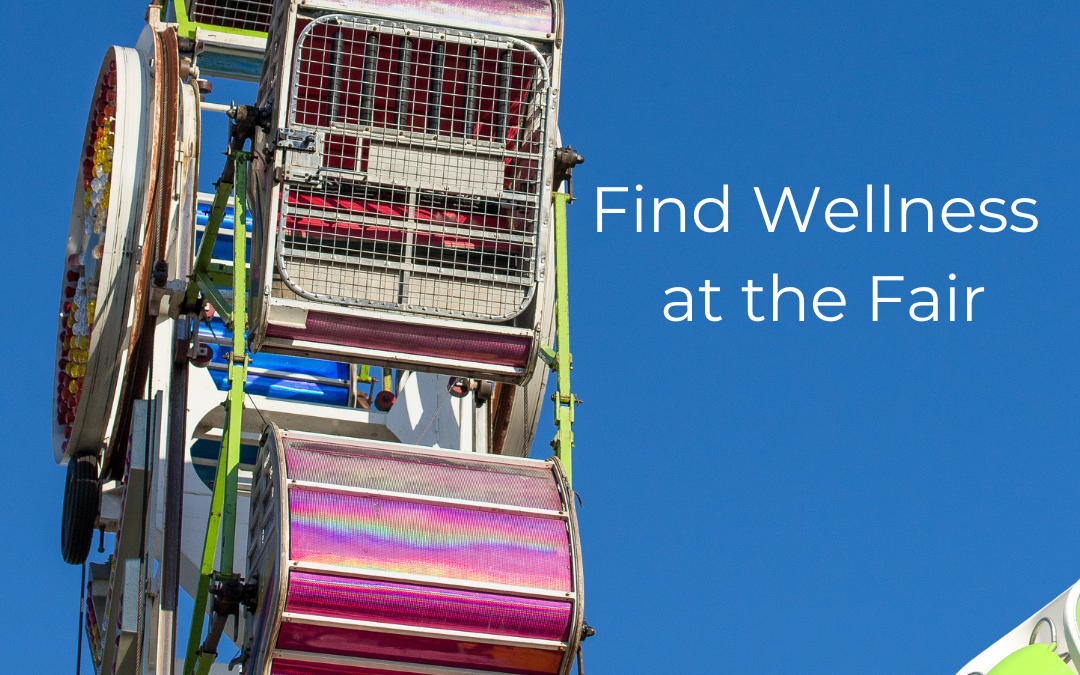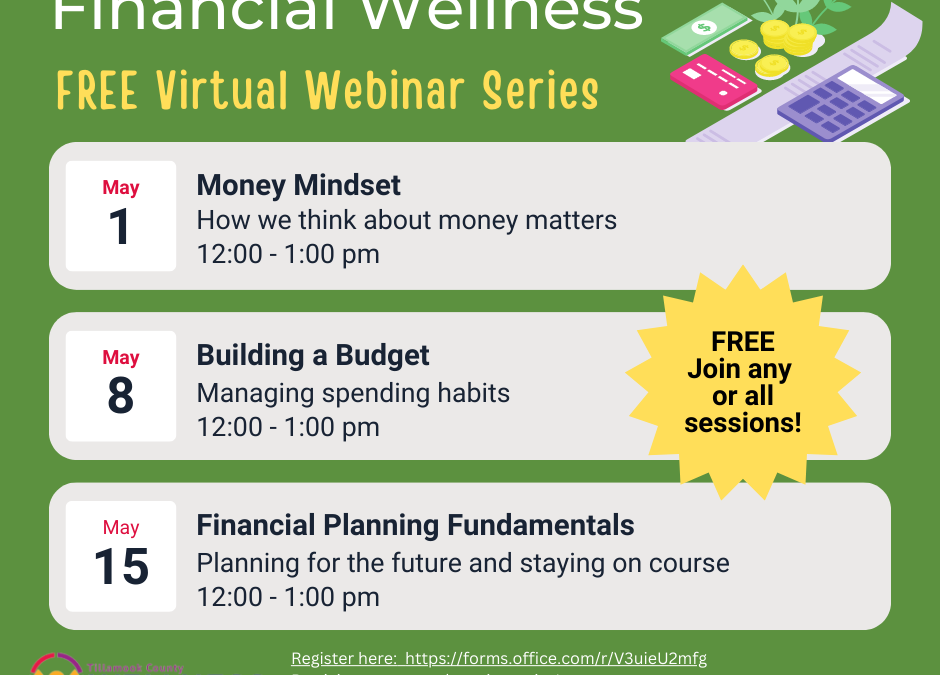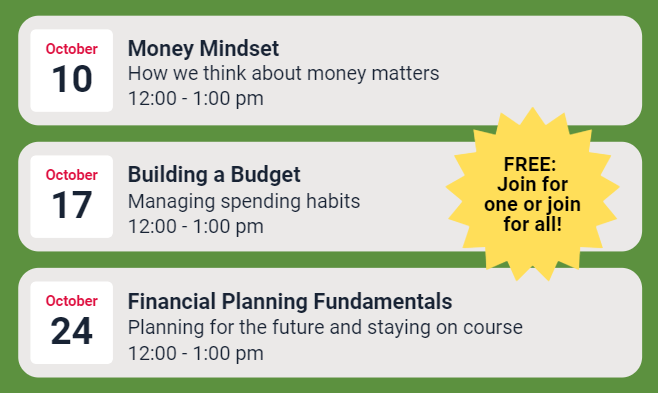
by Guest | Mar 24, 2025 | Being Well, Featured, Uncategorized, Work Well
Written by: Sarah Ermer, MPH, CHES; Prevention Specialist at Tillamook Family Counseling Center
March is Problem Gambling Awareness Month, and when it comes to a behavior that can cause significant harm and remain hidden so easily, awareness is key. You may only picture gambling addiction as someone losing their life savings at a casino, and while many still experience gambling addiction in this way, gambling today takes more forms than it did even a decade ago. Technology has changed gambling, access to gambling, and how addiction takes hold—sometimes in ways we don’t even recognize.
If you’ve ever found yourself mindlessly scrolling through social media, telling yourself “Just one more minute” only to realize an hour has passed, you’ve experienced how technology can hijack our attention. Social media platforms like TikTok, Instagram, and YouTube Shorts use algorithm-driven content and intermittent rewards—features that stimulate the brain’s reward system much like gambling. Every swipe holds the potential for something exciting, unpredictable, and engaging. This taps into something psychologists call our variable reward system, which is the same mechanism that drives gambling behaviors. The uncertainty of what’s coming next (a viral video, a big payout) keeps us engaged far longer than we intend. This is why gambling addiction, like social media overuse, isn’t simply about willpower. It’s about the way our brains are wired for reward and reinforcement.
Let’s zoom out a little more, beyond gambling and social media, to another related pastime: video gaming. Though distinct activities, the line between gaming and gambling is becoming blurred. Many video games have features that replicate or explicitly mimic gambling. Spin-to-win rewards and loot boxes where players can pay real or in-game currency to win an unknown prize are both examples of how video games are exposing younger and younger players to the hook of gambling, not to mention games where players can enter and gamble within virtual casinos. And the younger a person is exposed to an addictive behavior, the more likely they are to experience addiction later in life. That’s why some countries, including Belgium, the Netherlands, and Australia have restricted or banned loot boxes from video games.
Moving back to the present-day landscape of gambling itself. Gambling is no longer confined to casinos or lottery games. In 2019, Oregon legalized sports betting, allowing people to place wagers anytime, anywhere via their smartphones. While convenient, this also means that gambling addiction can develop in secrecy. Someone could lose thousands of dollars without ever leaving their home. The accessibility of gambling apps makes it easier to engage impulsively, making problem gambling harder to recognize until significant harm has occurred.
Sports betting platforms, casino apps, and online poker sites are designed to keep users playing, using features like quick deposits, loss-chasing prompts, and VIP rewards. Without physical cash changing hands, it’s easy to underestimate losses. And because gambling doesn’t leave visible signs like drug or alcohol misuse can, it’s often called the “hidden addiction.” That’s why it is necessary to learn the warning signs of gambling addiction, both in ourselves and others.
Warning signs of gambling addiction can include:
- Spending more and more time gambling
- “Chasing” losses with more gambling
- Feeling the need to bet more money to feel the same excitement
- Creating special occasions for gambling (canceling other plans)
- Frequently borrowing or losing money with no clear explanation
- Mood swings, anxiety, or depression linked to gambling outcomes
- Feeling restless or irritable when trying to cut back
If you choose to gamble, these steps can help minimize harm:
- Decide in advance how much time and money you can afford to spend, and stick to that limit
- Avoid chasing lost money. The more you try to recoup your losses, the larger your losses will be.
- Make it a private rule not to gamble on credit. Don’t borrow money to gamble.
- Avoid gambling under stress. Don’t gamble as a way to cope with physical or emotional pain.
- Take breaks. The longer you play, the harder it is to stick to your limits. Step away regularly.
- Know when to walk away. If gambling stops being fun or causes distress, it’s time to stop.
Lear more warning signs and safer gambling guidelines by visiting OPGR.org.
I hope this article can be your introduction to learning about gambling harm and addiction. A few sentences about gaming or sports betting doesn’t begin to cover the depth of the issue, and there is always more to learn.
Remember, gambling addiction isn’t just a matter of willpower, and help is available. If you or someone you know is experiencing gambling harm, help is free and confidential. Go to OPGR.org, or call 1-877-MY-LIMIT.

by Michelle | Aug 10, 2024 | Being Well, Featured, Move Well, Uncategorized
August is a busy month! There are several free wellness activities coming up, some of which you can learn more about at the Tillamook County Fair.
“Treasure Your Wellness” Treasure Map: This interactive map can be found at the Tillamook Library bookmobile located near the Master Gardener’s garden by the east entrance of the fairgrounds. This fun, free, and family-friendly adventure runs From August 5th to September 30th . Explore wellness destinations like Activity Island, Be Well-Nourished Bay, Community Cove and the Isle of Inner Peace. Each location includes activity challenges —volunteer, cook a healthy meal, visit a rec center, start a savings account and more. Complete at least one activity on each island and you could win incredible wellness-themed prizes, like cornhole, pickleball, and disc golf sets or the grand prize of an ATX bike valued over $500! In addition to being available at the fair, maps can be found at local library branches, Kiawanda Community Center, Tillamook YMCA, North County Recreation District and Food Roots or on- line at This Way to Well-Being | Tillamook County Wellness.
Health Literacy Campaign: Materials from our recent health literacy campaign can also be found at the Tillamook Library booth at the fair. Bookmarks and other materials highlighting important health information like finding a primary care provider, getting vital health screenings and knowing when to visit your doctor, urgent care or emergency department, are just a few topics covered. You can also find more information here. Community Health Survey: When you visit the Library Bookmobile at the Fair, be sure to take our Community Health Needs Survey. Tell us what you and your family most need to live your best life and your areas of greatest concern impacting your health and well-being. You can also take the survey here.
Financial Wellness: Visit the Habitat for Humanity booth – located in the main pavilion building, under the stairs near the fair office – for community conversations on what financial health means to you. While you are there, learn more about first-time home buying and other ways you can work toward your financial goals. While you are at the Habitat for Humanity booth be sure to sign up for:
- FUNancial Wellness Event – Come to the Tillamook YMCA, Monday, August 19th, 2024, 5:00- 6:30 PM for food, fun and financial learning opportunities for kids 3rd -6th grade. This FREE event provides kids and families an opportunity to learn about saving, spending, growing and protecting money. Kids will take home more than just knowledge with free giveaways and prizes. Learn more and register for the event here.
- Sign Up to become a “FinLit” Financial Literacy Volunteer – This program relies on volunteers to deliver free curriculum from Financial Beginnings. Classes are held in English & Spanish at multiple community locations, including Tillamook Bay Community College, Helping Hands, and Trask High School.
Volunteers can commit to as many or as few classes as works for their schedule. To learn more or to register to become a volunteer, visit Financial Beginnings (finbeg.org). If we don’t see you at the fair, here are other ways you can get information about these and future wellness events.
AUTHOR: Michelle Jenck, Adventist Health Tillamook Director of Community Well-Being

by Guest | Nov 16, 2023 | Being Well, Featured, Uncategorized, Work Well
Angelica immigrated from Mexico to America in 2008, seeking a better life. Starting as a seasonal harvester, she soon discovered the many barriers between her and her goals. Realizing she was spending the majority of her wages to cover rent; she became determined to find a path to becoming a homeowner.
Unsure where to start, she went to her local credit union, began asking questions, seeking assistance. She learned that her first step was to build up credit, a process that took her seven months to be in good standing. Another issue arose, however, as her immigration status became another barrier to home ownership. Angelica was persistent with her credit union to provide a home loan, which she received after just weeks of deliberation.
Seeking to reduce her 30-year mortgage, Angelica made a commitment to pay off the house quickly, forcing her to cut expenses, save any funds, take on extra work and continually improve her credit. Through such planning, the house was paid in full in just four years.
Angelica shows that resilience and determination are fundamental traits to using existing systems to one’s benefit. By asking questions, getting advice from people with experience, and careful budgeting, anyone, no matter their financial status, can make their dream of home ownership, or finding financial freedom, a reality.
To watch Angelica’s interview visit https://tillamookcountywellness.org/work-well/financial-wellness
For more information on upcoming classes, visit our website at https://tillamookcountywellness.org/work-well/financial-wellness and follow Tillamook County Wellness on social media.

by Guest | Apr 11, 2023 | Work Well
You may be familiar with physical wellbeing or mental wellbeing, but what about financial wellbeing? Financial wellness focuses on our relationship with money and how we feel about the control we have over our financial future. If you’ve felt stressed about money, you’re not alone! Most of us experience a range of emotions when it comes to finances, and finding a starting point can feel overwhelming.
The connection between financial stress and mental and physical health led us at Tillamook County Wellness to focus the last few months on financial wellbeing. Thanks to a donation of time, Liz Carroll, Financial Life Coach at Mindful Money Coaches LLC, has provided insight and guidance for us to share on how to develop a healthier relationship with finances.
You may have seen some of the videos that Liz has created as part of a financial wellness mini-series that we have been sharing on the Tillamook County Wellness Facebook page. Each of the 15 videos are just a couple minutes long and cover a range of topics such as how to create goals & set guidelines, use different approaches for eliminating debt, set up “budget billing” where utility companies distribute your costs evenly over the year, and shift out of a negative mindset when it comes to organizing finances. If you missed some of these videos, don’t worry – we have all of them linked on our new Financial Wellness page at https://tillamookcountywellness.org/work-well/financial-wellness/
We are also excited to announce that we will be hosting three (free!) virtual webinars in collaboration with Liz Carroll for community members who are interested in diving deeper into their financial wellness journey. These webinars will be held on Mondays from 12 pm to 1 pm during the month of May:
- May 1st – Money Mindset: How we think about money matters
- May 8th – Building a Budget: Managing spending habits
- May 15th – Financial Planning Fundamentals: Planning for the future and staying on course
These webinars are open to all community members – join for one or join for all! You can find the registration link here or on the Tillamook County Wellness Facebook page.
If you have any questions about the upcoming webinars, please reach out to Michelle at jenckmd@ah.org. We hope to see you all there!
Other wellness questions? Email us at info@tillamookcountywellness.org. For more local health and wellness information, visit www.tillamookcountywellness.org or follow Tillamook County Wellness on Facebook and Instagram.

by Guest | Oct 11, 2022 | Archive
You may be familiar with physical wellbeing or mental wellbeing, but what about financial wellbeing? Financial wellness focuses on our relationship with money and how we feel about the control we have over our financial future. If you’ve felt stressed about money, you’re not alone! Most of us experience a range of emotions when it comes to finances, and finding a starting point can feel overwhelming.
The connection between financial stress and mental and physical health led us at Tillamook County Wellness to focus the last few months on financial wellbeing. Thanks to a donation of time, Liz Carroll, Financial Life Coach at Mindful Money Coaches LLC, has provided insight and guidance for us to share on how to develop a healthier relationship with finances.
You may have seen some of the videos that Liz has created as part of a financial wellness mini-series that we have been sharing on the Tillamook County Wellness Facebook page this past summer. Each of the 15 videos are just a couple minutes long and cover a range of topics such as how to create goals & set guidelines, use different approaches for eliminating debt, set up “budget billing” where utility companies distribute your costs evenly over the year, and shift out of a negative mindset when it comes to organizing finances. If you missed some of these videos, don’t worry – we have all of them linked on our new Financial Wellness page at https://tillamookcountywellness.org/work-well/financial-wellness/
We are also excited to announce that we will be hosting three (free!) virtual webinars in collaboration with Liz Carroll for community members who are interested in diving deeper into their financial wellness journey. These webinars will be held on Mondays from 12 pm to 1 pm during the month of October:
- October 10th – Money Mindset: How we think about money matters (recording coming soon!)
- October 17th – Building a Budget: Managing spending habits
- October 24th – Financial Planning Fundamentals: Planning for the future and staying on course
These webinars are open to all community members – join for one or join for all! You can find the registration link here or on the Tillamook County Wellness Facebook page.
If you have any questions about the upcoming webinars, please reach out to Michelle at jenckmd@ah.org. We hope to see you all there!
Other wellness questions? Email us at info@tillamookcountywellness.org. For more local health and wellness information, visit www.tillamookcountywellness.org or follow Tillamook County Wellness on Facebook and Instagram.





